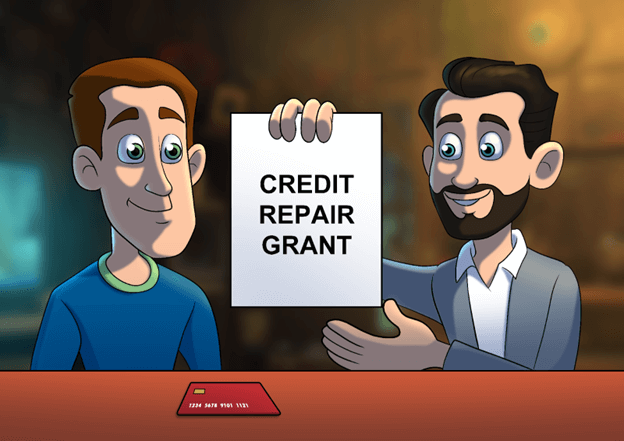- Blogs
- /
- 10 Tips For Raising Your Credit Score
10 Tips For Raising Your Credit Score

Summary
A strong credit history provides access to loans. It shows that someone is financially wise. However, understanding credit takes more than just knowledge. It takes a careful strategy and a well-thought-out plan. These turn credit goals into actual accomplishments.
Knowing the main factors that affect credit is the best strategy to improve credit. You can significantly improve your credit by using little credit. You should also have a diverse mix and make on-time payments. But be wary of dishonest lenders. They promise instant cures, but these often lead to traps.
It takes time and smart money management practices to build outstanding credit. This article will review practical methods for raising your credit score. It will focus on avoiding frequent mistakes. To set yourself up for financial success, let’s look at the dos and don’ts of building strong credit.
Key Takeaways
- To raise your credit score, check your existing debts. Also, review your payment history and the negative marks on your credit report. This will help you understand your current credit standing.
- Establish a target credit score and break down the journey into achievable milestones. Minor incremental improvements over time can be motivating.
- Develop a plan to build credit for you. It will include paying bills on time. It will also involve cutting debt and managing new credit accounts carefully.
- Use secured credit cards responsibly. Use them to build credit history. Aim for small credit limits at first.
- Explore structured repayment plans for building credit and making consistent, on-time payments.
- Use someone else’s good credit and low credit use. You can do this by becoming an authorized user.
- Make on-time payments for credit cards, utility bills, and loans. This will improve credit scores.
- Maintain a low credit utilization ratio (below 30%) by managing balances responsibly.
- Consolidate high-interest debts cautiously, considering potential impacts on credit scores.
- Assess your finances before asking for higher credit limits. Understand their potential impact on credit scores.
Understanding Credit Score Growth

1. Setting Realistic Goals
Building a good credit score doesn’t happen overnight, especially if you have a really bad credit score. It could take several months, but the important thing is that you’ll have a much better credit score at the end of your credit-building process.
It’s essential to start by assessing your current credit situation. Look at your existing debts, payment history, and any negative marks on your report. Determine where you currently stand in terms of your credit score.
After understanding where you are, you must set the target credit score you want to hit. It can be aiming for a specific number. Or, it can be reaching the threshold for a good credit rating. Having a clear goal is crucial.
Break the journey into doable steps once you have set your credit score goal. For example, aim for small improvements over time if you have a low score. These smaller victories can motivate you as you work towards your ultimate goal.
Tracking progress is just as important as setting goals. Regularly check your score. It keeps you accountable and allows adjustments. It’s like climbing a ladder. Each step brings you closer to the top. But it takes time and effort.
2. Importance of Strategy
Developing a personalized plan is vital. It is tailored to building your credit score and is fundamental to succeeding. Consider many methods. For example, paying bills on time, reducing debt, and being cautious about new credit.
Your strategy should adjust based on changing circumstances. These include income fluctuations and unexpected expenses. Things that may affect your ability to make timely payments.
Staying disciplined is vital. Focusing on long-term goals stops short-term temptations from derailing progress.
Starting Your Credit Journey
1. Secured Credit Cards
If you’re wondering how to build credit, consider applying for a secured credit card. This card type is designed for individuals who are new to credit or have a limited credit history. With a secure card, you provide a security deposit as collateral if you default on payments. By using this card responsibly, you can begin establishing your credit history.
Making timely monthly payments is crucial when using a secured card to build credit. This shows you can manage credit well. It can boost your credit score. A low credit limit makes for manageable usage. It reduces the risk of overspending.
As you keep using your secured card and paying on time, you may eventually qualify for an unsecured card. This change shows progress in building your credit. It gives access to more financial opportunities.
2. Credit-Builder Loans
Another good way to build credit is with credit-builder loans. Many local banks and credit unions offer them. The loans help them build or improve their credit scores while saving money.
Exploring these loan options can help. They offer structured repayment plans. The plans focus on making consistent, on-time payments. The payments are made over several months or years. Like all responsible borrowing, making timely payments shows reliability. It helps build one’s financial health.
Monitoring the impact of these loans on your credit score over time. It’s essential to improve. We need to understand how account types affect the credit profile. This approach helps individuals see their financial habits. They use it to work towards better long-term results.
3. Authorized User Status
Becoming an authorized user on someone else’s credit account lets you use their good payment history. You can also use their low credit use. When considering this option, the primary account holder must manage the account responsibly.
Reviewing how being an authorized user affects one’s credit profile is essential. This includes watching changes in one’s “FICO Score.” It helps gauge progress toward personal “Financial Goals.”
Managing Existing Credit
1. Timely Bill Payments
Paying bills on time is crucial for building good credit. They can improve your credit score. This is true for credit card, utility, and loan payments. Setting up automatic payments can help you avoid missed deadlines and late fees. Missing payment due dates can hurt your credit. So, timely bill payments are crucial to building good credit.
Consistently meeting payment deadlines is essential for maintaining a healthy credit profile. Late payments incur penalty fees. They also hurt your credit score. It’s necessary to pay all bills on time. This shows lenders that you are financially responsible and reliable.
2. Credit Utilization Ratio
Your credit utilization ratio significantly influences your credit score. It is the proportion of available credit that you actually utilize. Remaining low is essential to establishing and preserving excellent credit.
You must keep a low credit utilization ratio. This is vital for building and maintaining good credit. Aim to keep the total debt owed below 30% of the available credit limit across all accounts. By doing so, you’re using credit responsibly. You’re not overextending yourself financially.
Regularly check your card balances. Pay them off in full each month. This can help keep a good credit utilization ratio. High use rates may show financial strain. This strain could hurt your credit score. So, it’s essential to manage this well.
3. Debt Consolidation
Combining high-interest debts into one loan with lower interest may help when considering ways to manage debts and build better credit. It will simplify repayments and reduce interest costs from multiple accounts.
However, it’s crucial to be cautious when opening new accounts during consolidation. This might lead to more inquiries on your report, hurting your credit score. First, understand the impacts on your finances. Do this before consolidating anything.
Increasing Your Credit Limits

1. Requesting Credit Increases
It’s essential to do this judiciously. Start by assessing your current credit limits and financial situation. If appropriate, request a higher credit limit on existing accounts.
A higher limit can lower your usage ratio if used well. However, avoid making too many requests. They could raise red flags with creditors and harm your credit score.
Understanding the potential impact on your credit before requesting increases is crucial. An increased limit may cut your utilization ratio. However, many requests for higher limits may signal financial distress to creditors. This can hurt their confidence in giving you more credit. So, you must weigh the benefits and drawbacks of asking for a credit limit increase. This is vital before taking action.
Consider this example. You have two credit cards with a total limit of $10,000. You usually carry a $3,000 balance on both cards. One card has a $5,000 balance. The other has no balance but only a $2,000 limit. Asking for a higher limit on the latter card could reduce your overall ratio.
2. Impact on Utilization
Understanding how higher limits affect your overall ratio is critical. This is important when raising your credit limits. More total credit gives more flexibility. It lets you manage balances without maxing any account or hitting high utilization.
However, be careful not to spend more just because limits are raised. Doing so could lead to more debt than you can manage. Remember, responsible use of higher limits boosts your credit score.
For example, say you get a limit increase on one of your cards from $2,000 to $4,000. This change will lower the used credit percentage if you don’t spend more. It would then improve the overall ratio across all accounts.
Responsible use means paying off balances each month within manageable means. It means not carrying large monthly balances. This is despite having access to long credit lines.
3. Monitoring Your Usage
Monitoring how you use these higher credit limits is vital. It’s as important as getting them wisely at first. Keeping track ensures you maintain healthy spending habits even with additional available funds.
Disputing Report Errors
1. Obtain and Review Regularly
Getting and reading your credit reports from major bureaus is the best way to build credit. By doing this regularly, you can keep track of your financial history.
Look for any errors or inaccuracies that could negatively impact your credit score. These errors might include incorrect personal information, fraudulent accounts, or inaccurate payment histories.
You must get copies of your credit reports from all three big bureaus. They are Equifax, Experian, and TransUnion. This will give you a complete view of your credit history. Federal law grants you one free copy of each report annually.
2. Dispute Errors Promptly
If you find any errors in your credit report, you must dispute them quickly. Use the proper channels. This involves contacting the bureau that issued the report. You give them details about the error and request an investigation.
Errors can significantly hurt your credit. For example, if a system error shows late payments when you’ve paid on time, disputing it can stop harm to your credit score.
3. Identify Potential Fraud
Monitoring your credit reports also helps identify potential fraud or identity theft. If you see new accounts or unauthorized inquiries on your report, someone may have used your personal information without permission.
By catching these issues early through regular monitoring, you can act to fix them. This action reduces much damage to your credit.
4. Follow Established Procedures
When fixing credit report errors, it’s crucial to follow set procedures. These procedures are per the Consumer Financial Protection Bureau (CFPB) guidelines. Each bureau has its process for submitting disputes online or via mail.
Following these steps ensures that disputes are handled quickly. They are handled within legal frameworks, like the Fair Credit Reporting Act (FCRA).
5. Provide Supporting Documentation
Supporting documentation is vital in substantiating claims made during the dispute process. You may need bank statements showing timely payments. Or, you may need correspondence confirming account closures. Such supporting documents strengthen your case.
For instance, a system error shows higher balances than you owe. This is due to missed updates from creditors. Providing relevant documents can fix this error.
6. Persistence Pays Off
Following up with creditors and bureaus is critical. You must do this until discrepancies are satisfactorily resolved. This, in turn, improves one’s credit profile. Persistence shows commitment to accurate reporting. It also protects against the harm errors can cause to one’s credibility.
Understanding how resolving discrepancies improves credit profiles underscores why persistence pays off.
Strategic Payment Planning
1. Paying Down Balances
Paying down balances is the best way to build credit. Start by focusing on high-interest debts to reduce overall interest costs. This means paying off debts with higher interest rates.
These debts include credit card balances or personal loans. Doing so can save money in the long run and improve your financial standing.
Consider using any extra funds or windfalls towards debt reduction efforts. This could include tax refunds, work bonuses, or unexpected cash gifts. Using these resources to pay your balances can significantly speed up your debt reduction.
Maintain regular payments across all accounts while focusing on reducing balances. Making at least the minimum payment on each account is crucial. It helps build a positive payment history and shows responsible financial behavior.
Lowering balances can help your credit utilization ratio. This ratio is vital for your credit score. Aim to keep this ratio below 30%. Do this by using less credit compared to your limits.
2. Avoiding Late Payments
To build and keep good credit, you must avoid late payments. This is crucial. Setting up reminders for due dates. Or, enrolling in automatic payments ensures that bills are paid on time.
Plan for unexpected circumstances. They can affect timely payments. Create an emergency fund or set aside income for bill payments. This proactive approach helps reduce financial disruptions. They could lead to missed deadlines.
You must consistently meet payment deadlines. This is key for avoiding late fees and credit damage. A single late payment can hurt your chance at good terms for future loans and lines of credit.
Late payments bring instant penalties and a mark on your credit report. They can lower your credit score over time.
Dealing with Collections
1. Addressing Collections Accounts
There are several essential steps you can take to improve your credit. First, consider negotiating settlements or payment plans with collection agencies. This could involve contacting the agency. You would propose a reduced amount as full payment or set up a payment plan that fits your budget.
Understanding the potential impact of settling versus paying in full is crucial. Settling for less than the total owed may hurt your credit. Paying in full might be better in the long run.
Request validation of debts before making any payments. You must ensure the debt is truly yours. Also, check that all the information is accurate and up-to-date.
Addressing collections accounts is crucial for improving overall credit health. Manage these accounts proactively. By doing so, you can start to rebuild a good credit history. You’ll also show responsible financial behavior.
2. Paying Off Collections
When dealing with paying off collections, you must consider some options. One approach is to negotiate “pay-for-delete” arrangements with collection agencies. They agree to remove the collection account from your credit report when you pay.
Paying off collections without removal won’t boost your score at first. But, it shows effort to resolve debts.
Understanding the statute of limitations and potential legal implications before paying is essential. The statute of limitations is how long a creditor has to sue you over an unpaid debt. Once this period ends, they lose their right to sue to collect the debt.
Resolving collections responsibly is essential for rebuilding a positive credit history. Address these accounts one by one. Stick to agreed terms. This will help you rebuild trust with creditors and lenders.
Diversifying Your Credit Mix

1. Types of Credit
Having a diverse mix of accounts is crucial. This means combining different types of credits, such as revolving and installment accounts. Revolving credit has variable payments based on the balance, like credit cards. Installment credit has fixed payments, like mortgages or auto loans, over a set period.
To diversify your credit mix, explore many options. These include mortgages, auto loans, personal lines of credit, and more. You can build a strong credit history by understanding how these account types add to a good profile.
For example:
- Having both a mortgage and a credit card shows managing different debts well. A mortgage is an installment account, and a credit card is a revolving account.
- Understanding each type’s impact on your financial health helps. It lets you make informed decisions about which types of credit to pursue.
Exploring these options lets people see how different credit types help increase scores. For instance:
- A healthy mix showcases that you can handle various debts responsibly.
- It also shows that you can manage long-term loans well. You can also handle shorter-term revolving accounts.
2. Benefits of Diversification
The benefits of diversifying your credit mix are manifold. Firstly, diverse accounts show responsible handling across various types of credits. This reflects positively on your overall financial responsibility and management skills.
Moreover:
- In downturns or changes in lending, having diverse accounts helps. They improve resilience against harm.
- This flexibility helps improve scoring models. It also boosts financial adaptability.
Diversifying your credit mix helps scores. It also boosts financial health by making lenders see you as less risky. This is due to the variety in how you manage debt.
Maintaining Older Accounts
Account Longevity
Keeping old accounts with good payment histories is one of the best ways to build credit. Keeping older accounts open shows lenders something important. It shows them that you manage money well. For example, if you’ve had a credit card for several years and always made on-time payments. This is good for your credit report.
Also, closing old accounts can hurt your credit score. It does this by shortening the average age of your accounts. Lenders often view longer-standing accounts as an indicator of stability and reliability. So, keeping these old accounts active can significantly boost your credit score.
Dealing with Delinquencies
Addressing delinquent accounts promptly is essential when building or rebuilding credit effectively. If you face outstanding debts, consider negotiating payment plans. Also, seek advice from financial experts or counselors specializing in debt management.
You should understand the potential consequences of prolonged delinquencies on your account. Late or missed payments can hurt your credit score. They also make it hard to get good terms for new credit, like loans or mortgages.
Taking proactive steps to address delinquent debts is crucial. It minimizes the damage they may cause to your financial health and future borrowing.
Limiting Credit Inquiries
1. Hard Inquiries Management
It’s crucial to be mindful of the impact of hard inquiries. These occur when applying for new credit, such as a loan or credit card. Many hard inquiries within a short period can negatively affect your credit score.
For example, if you’re shopping for the best interest rates on a mortgage or an auto loan, try to do so quickly. Aim for two weeks. This way, all related inquiries will count as just one.
You must manage hard inquiries. They directly affect your credit score. Lenders might see this as risky if you’re seeking new credits and have many hard pulls. They could view you as desperate for credit. This could affect their decision to extend new credit to you.
It’s important to understand that managing these inquiries is not about avoiding them. Instead, it’s about being strategic in how and when they happen.
2. New Credit Applications
Handling new applications is critical to finding the best way to build credit. Do it wisely. Applying for too many credits in a short time can signal financial distress. It can also hurt your score. It’s advisable only to apply for new credits when necessary and manageable.
Opening many accounts quickly may make creditors think you are overextending yourself. This is a red flag that could hurt your standing with lenders.
Recognizing Rent and Utility Payments
Non-Credit Bill Reporting
Reporting non-credit bills offers more ways to show financial responsibility. It goes beyond the typical loan or card repayments. This means people with a short borrowing history can use regular expenses as proof. They can use expenses such as rent and subscriptions to show they can manage money well.
Understanding which bills are reported to the major credit bureaus is crucial. Traditional credit reports may not include rent and utility payments. But some alternative reporting services do.
These non-credit bill reporting services can help people build a positive credit history. This is for individuals who don’t have many other lines of credit. For example, if you consistently pay your rent on time. This could show your financial responsibility.
Consider using non-credit bill reporting. It’s an extra way to show responsible financial behavior. You can enhance your credit profile by reporting these payments accurately and positively. You can do this even without traditional lines of credit like loans or credit cards.
However, you must know that missed utility payments or late rent may still hurt your scores. They might not appear on a credit report. But, landlords and utilities may report them to collections or courts. This will affect your credit.
Impact on Credit Profile
Recognizing how financial actions affect your profile is vital. It’s critical to understand how they affect your credit score. You should review factors often. They include payment history. This covers both traditional debts and non-traditional bills.
Also, utilization is there. This is the amount of available credit being used. The last factor is the type of credit. This means installment loans versus revolving accounts. They show what impacts scoring models.
Changes in these factors directly affect scoring outcomes. Most scoring models heavily weigh payment history when calculating a person’s score. Thus, making on-time rental payments helps. You can do this through platforms that offer rental payment reporting. It can help improve one’s score. It shows good payment habits.
The impact on your profile directly correlates with scoring outcomes. So, keeping a clean record in all areas helps. This includes rent payments. It dramatically helps build a strong credit profile.
Tracking Your Progress
Regular Credit Monitoring
Establishing habits to check and monitor your credit report regularly is crucial. Doing this lets you catch errors early. It ensures that your credit score is a true reflection of your behavior.
Use free services from major bureaus or reputable third parties. They help you stay updated on changes to your credit report. These services often send alerts for new accounts opened in your name. They also alert you to significant changes in your credit use.
Stay vigilant. Watch for signs of identity theft or fraud that affect your scores. Regular monitoring lets you find any unauthorized activity quickly. It helps you take action to protect yourself from potential credit damage.
Regular monitoring also safeguards against inaccuracies that could negatively impact your score. Stay informed about your report. Then, you can dispute errors in it. This will ensure lenders have accurate data when assessing your credit.
Adjusting Strategies Over Time
Adapting by adjusting based on changing needs is critical. Tracking your progress in building credit can help with this.
As life circumstances change, so do our financial requirements and priorities. Periodically reviewing progress helps identify areas where adjustments are necessary to optimize results.
Stay informed about changes in credit scoring or lending. It ensures that you know how they may affect how creditors view credit. This knowledge empowers people to adjust their strategies. It aligns them with current best practices. These practices help them improve and maintain good credit scores.
Adapting strategies over time ensures continued progress toward better scores. It allows people to adapt to change.
Closing Thoughts
Building credit is like building a sturdy house. You need a strong base. You also need to keep an eye out for cracks. Knowing your credit score helps. Make strategic moves to improve it. Stay on top of your financial habits. Then, you’re on your way to an excellent credit score. So, keep at it—every little action adds to significant progress.
FAQs
What is a credit score, and why is it important?
A credit score is a numerical representation of your creditworthiness. It’s crucial because lenders use it to determine your loan repayment ability. Think of it as a financial report card that impacts your access to credit cards, mortgages, and more.
How can I start building my credit from scratch?
To build your credit, consider getting a secured credit card. Or become an authorized user on someone else’s account. Paying rent and utility bills on time helps establish a positive payment history.
What are some effective strategies for managing existing credit?
Managing existing credit involves paying on time. It also means keeping balances low and not opening many new accounts simultaneously. This demonstrates responsible borrowing behavior to potential lenders.
Is disputing report errors beneficial for improving my credit score?
Absolutely! Fixing any mistakes on your credit report can raise your score. It does this by ensuring that only valid information is used to calculate it. Be vigilant when reviewing your reports for any discrepancies.
How does diversifying my credit mix contribute to building better credit?
They have installment loans, like auto or student loans. They also have revolving accounts, like credit cards. This mix shows good money management skills. Lenders appreciate seeing how you handle different types of debt responsibly.
Our Latest Blogs:
FREE Strategy Session to Fix Your Credit Mostbet Login Formas De Entrar Na Conta Mostbet PortugalCrypto deposits and withdrawals...

ThisIsJohnWilliams

ThisIsJohnWilliams
FREE Strategy Session to Fix Your Credit Blogs / Facebook Twitter Linkedin Instagram Share Summary Your credit score is...

ThisIsJohnWilliams
FREE Strategy Session to Fix Your Credit Blogs / Facebook Twitter Linkedin Instagram Share Summary Ever wondered about the...

ThisIsJohnWilliams

ThisIsJohnWilliams
FREE Strategy Session to Fix Your Credit Blogs / In a society where credit scores can significantly influence economic...





